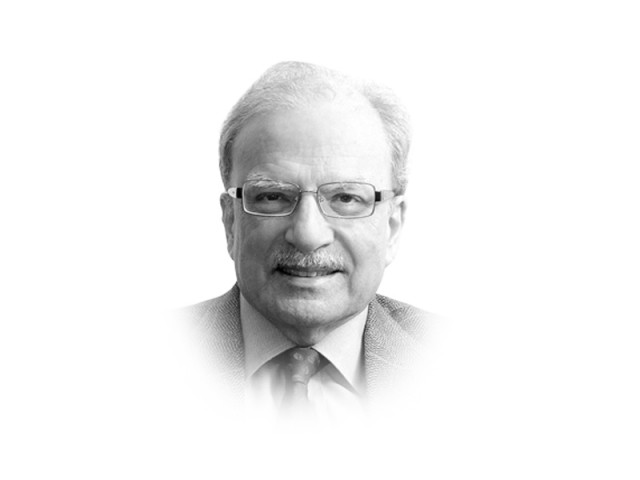Dealing with the Afghan imbroglio
If the Taliban forces gain more territory, as they are expected to do, the pressure on Pakistan will increase

The writer is a former caretaker finance minister and served as vice-president at the World Bank
At least six times in the past century and a half, foreign forces have failed to establish their dominion over Afghanistan. Why was that the case? The question has often been asked but never satisfactorily answered. One of the common explanations is that the Afghan culture worked in favour of the local forces. After all, it is at a very early age that the Afghan boys learn to handle guns. They can be easily mobilised to fight.
Or, could it be that the Afghan fighters outnumbered the foreign invaders? That could be an answer since the Afghans who resisted foreign occupation had a large pool of people from which they could draw. The number of people joining the fight from their side was elastic; it increased or decreased giving the strength of the deployed forces on the opposing side. The Afghans, in other words, had the support of the people.
Or, the foreign invaders perhaps didn’t use enough force. That couldn’t be the case since the British, the Soviets, and the Americans along with their Nato allies did not limit the use of power they could muster. And that included airpower. Both, the Soviets and the Americans used helicopter gunships – and the Americans, the drone – but were not able to overcome the resistance offered by the local fighters. It is generally accepted that when Washington supplied the Afghan mujahideen with Stinger missiles, they were able to overcome the enormous superiority of the forces the Soviet Union had deployed.
With none of these questions providing satisfactory answers, the Americans have come to believe that their failure to subdue the Afghan resistance was largely because of what they call “Pakistani duplicity.” Pakistan provided the Afghan fighters sanctuaries on its side of the long and porous border. The dissident forces effectively used the sanctuaries in Pakistan’s tribal areas to rest, recuperate and re-equip. It was respect for Pakistan’s sovereignty that prevented the Americans from chasing the Afghan fighters across the frontier. The Americans, instead, relied on pressure on Islamabad to act against the Afghan fighters who operated from within its territory. The Pakistanis promised to act but it was believed that they managed to wriggle out of these commitments. Hence, the charge of being duplicitous in dealings with the United States.
The more charitable critiques of the Pakistani role in Afghanistan was that Islamabad didn’t have the military strength to expel the Afghan fighters when they found refuge in its territory. After all, Pakistan has lost a large number of its own people to terrorist attacks, often by fighters who came in from Afghanistan. For instance, in December of 2014, a group of Taliban fighters crossed into Pakistan from Afghanistan and killed more than 140 students attending classes in the Army Public School in Peshawar. This was to punish the army for the operation it had launched in North Waziristan to cleanse it of extremists.
The “blame-the-Pakistanis” game reached a crescendo in the summer of 2016 when the Taliban activity in Afghanistan picked up and made territorial gains against the Kabul government. These prompted President Barack Obama to agree to the demand of his generals to maintain a larger force in Afghanistan from the one he wanted. His initial aim was to end America’s involvement in the Afghan war during his tenure. The president became resigned to a long fight in Afghanistan. On July 7, he met with the press to explain his decision. “The security situation in Afghanistan remains precarious,” he said. “Afghan security forces are still not as strong as they need to be. It is going to take time to build up the military capacity that we sometimes take for granted. Given the enormous challenges they face, the Afghan people will need the partnership of the world, led by the United States for many years to come. When we first sent our forces into Afghanistan 14 years ago, few Americans imagined we’d be there – in any capacity – this long.”
That he would not be able to keep his word frustrated the American president and he became openly and highly critical of Pakistan. In an article written by Jeffrey Goldberg for the magazine The Atlantic, Obama was quoted calling Pakistan a disastrously dysfunctional state. This sentiment was shared by members of Congress who called a set of congressional hearings in which people such Zalmay Khalilzad testified and called for ending all serious relations with Islamabad, turning it into “a second North Korea” to force that it cooperate in Afghanistan. “This hearing will give members the opportunity to learn more about Pakistan’s longstanding ties to terrorist groups and allow for more informed reassessment of US foreign policy vis-a-vis Islamabad,” said Congressman Ted Poe, a Republican chairman of a Congress sub-committee, who had summoned the hearings to “determine whether Pakistan is America’s friend or foe.” If the Taliban forces gain more territory, as they are expected to do, the pressure on Pakistan will increase.
Published in The Express Tribune, July 18th, 2016.
Like Opinion & Editorial on Facebook, follow @ETOpEd on Twitter to receive all updates on all our daily pieces.
















COMMENTS
Comments are moderated and generally will be posted if they are on-topic and not abusive.
For more information, please see our Comments FAQ